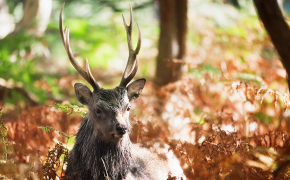Staff and students have been extremely but successfully busy undertaking policy-relevant, interdisciplinary research science aimed at: increasing understanding of environmental change and its impacts on biodiversity, ecosystems services, the physical environment and human livelihoods, evaluating environmental management options and policy responses, developing sustainable solutions to enhance environmental conditions and human wellbeing.
Research into the green economy has included carbon storage and management, renewable energy, green tourism, sustainable design, leadership of sustainable development, and the linkages between the environment and the economy.
Our research continues to be internationally recognized, as demonstrated in publications in leading journals like Science, Proceedings of the National Academy of Sciences, ISME Journal (Nature’s Group), Proceedings of the Royal Society Series B, PLoS, Philosophical Transactions of the Royal Society, Quaternary Science Reviews, and Journal of Human Evolution, amongst many others. We recently launched a globally unique Masters degree in the Green Economy, which is delivered by distance learning. Fish Ecology was defined as a world leader by SCOPUS citation rankings in 2012.
PhD student numbers have increased by 200% since 2007 due to our success at attracting external funding for BU’s novel match-funded PhD programme, and increased success at winning externally funded PhD studentships.
Our contribution to the Festival of Learning was substantial – we organised 16 events and activities, all of them well attended and enjoyed by attendees. This included a series of events to commemorate the centenary of the death of Alfred Russel Wallace. As the co-discoverer of the theory of evolution with Charles Darwin, as well as founding the discipline of biogeography, Wallace has left a substantial scientific legacy. A wildlife walk was held culminating in a visit to the monument marking Wallace’s final resting place. One suspects that Wallace himself would have enjoyed the wildlife walk most of all, complete with encounters with snakes, beautiful butterflies and remarkable slaver ants – all elements of Dorset’s wonderful biodiversity. Wallace 100 Celebration does not end here! A forthcoming event will take place on 12th of October in partnership with Thomas Hardye School (Dorchester).
The Poole & Purbeck Portal successfully launched in March this year, funded by Fusion. The portal is an on-line community to promote better understanding of our region’s unique natural and heritage assets. Exciting opportunities, knowledge and expertise are shared on the Portal, creating a gateway for new collaborations across the region. We invite you to join us by registering your interest on http://www.pooleandpurbeckportal.co.uk/
Dr Genoveva Esteban
School of Applied Sciences
Sign up to the Biodiversity, Environmental Change and Green Economy research themes here:
 Smart, Green and Integrated Transport
Smart, Green and Integrated Transport













 Read and sign up to BU’s Policy Influence Digest
Read and sign up to BU’s Policy Influence Digest Upcoming opportunities for PGRs – collaborate externally
Upcoming opportunities for PGRs – collaborate externally BU involved in new MRF dissemination grant
BU involved in new MRF dissemination grant New COVID-19 publication
New COVID-19 publication MSCA Postdoctoral Fellowships 2024
MSCA Postdoctoral Fellowships 2024 Horizon Europe News – December 2023
Horizon Europe News – December 2023